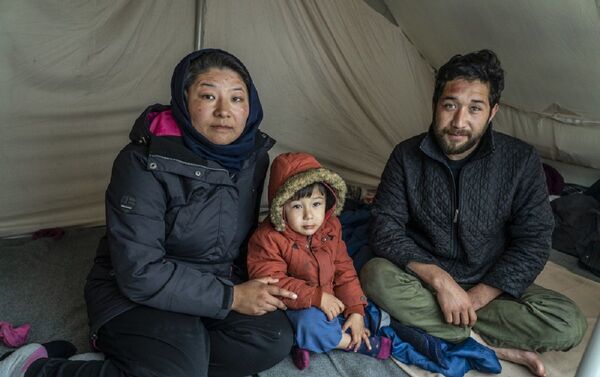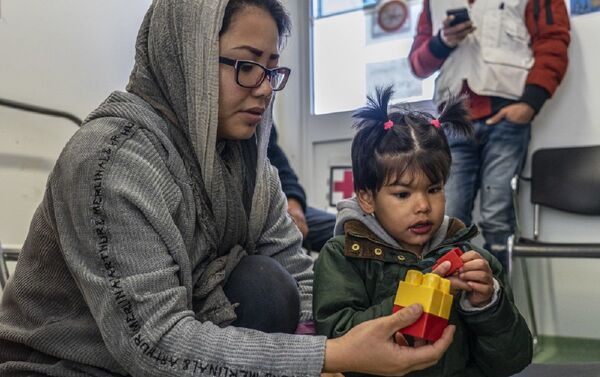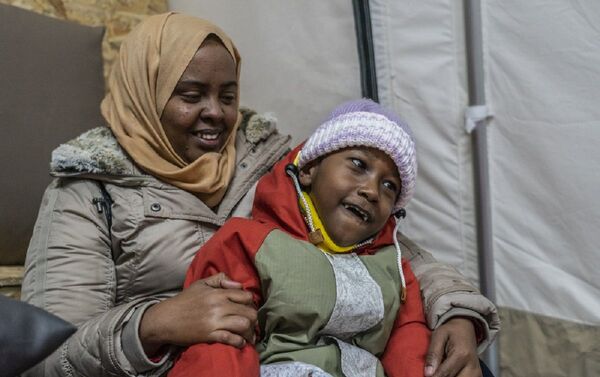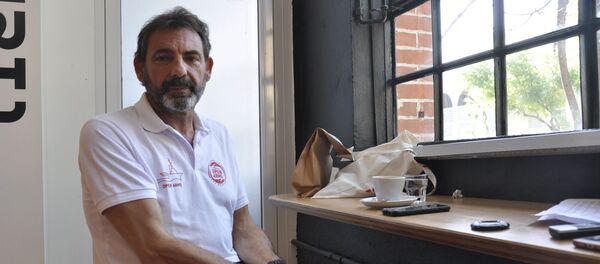El campo de Moria tiene capacidad para 3.000 personas y ya son 20.000 los indocumentados y solicitantes de asilo que viven hacinados en este lugar, entre malas condiciones de higiene, agua sucia y basura por todas partes.



Médicos sin Fronteras calcula que hay una ducha por cada 506 personas y un inodoro por cada 210. Las personas deben hacer colas de horas para ir al baño, para comer o para ser atendidos por un médico. La situación es más grave aún para los más de 140 niños enfermos que precisan ser atendidos en un hospital.
"Estos niños necesitan urgentemente ser trasladados a la Grecia continental o a otros países de la Unión Europea para recibir atención médica especializada. Hay algunos con diabetes, otros con problemas del sistema inmunitario, con epilepsia grave, malformaciones cardíacas, parálisis, hasta un niño con cáncer", dijo a Sputnik Tommaso Santo, coordinador general de Médicos sin Fronteras en Grecia.
La isla de Lesbos, ubicada a pocos kilómetros de la costa turca, se ha convertido en la puerta de entrada a Europa para miles de personas que huyen de los conflictos bélicos en sus países de orígen. La mayoría provienen de Afganistán, pero también llegan desde Siria, Irak, Congo y Ghana, entre otros.
Desde Médicos sin Fronteras trabajan en el campo de Moria para brindar atención primaria pediátrica en una pequeña clínica, donde reciben unas 130 consultas diarias. También tienen otro hospital donde atienden problemas de salud mental.
"Una de las consecuencias más graves de estas políticas de contención son las enfermedades mentales. Tenemos pacientes psicóticos que tiene un trauma por todo lo que han vivido, por el viaje. Y otros que desarrollan estos problemas aquí, es decir, que llegan bien y se enferman por las condiciones en las que los dejamos", concluyó el coordinador general de Médicos sin Fronteras en Grecia.


